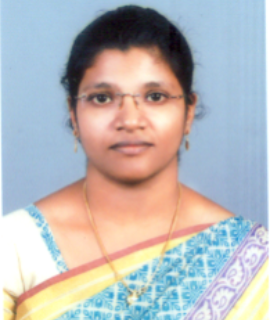Title : Discerning microbes from different environments for enzymatic saccharification of lignocellulosic biomass
Abstract:
Besides the rise in crude oil price and depletion of the fossil fuel, its growing demand had accelerated the research in bioenergy. Among the different potential sources for biofuel production, the lignocellulosic biomass is promising feedstock for biofuel industry. Huge availability of lignocellulosic biomass at low cost and simple process for conversion cellulose to fermentable sugars is an added advantage of lignocellulosic feedstock over other available biofuel resources. Lignocelluloses are a complex carbohydrate polymer comprises of about 40–50% cellulose, 20–40% hemicelluloses, 18–25% lignin and other extractable components on dry matter basis. The complex polymer composition makes plant biomass recalcitrant and their abundance negatively affects land use. Nature had bestowed several microorganisms capable of digesting those complex carbohydrates into simple sugars. The major groups of microbes producing lignocellulosic degrading enzymes are bacteria and fungi. The cellulase (exocellulases, endocellulases and β-glucosidases) and xylanase enzymes produced by microbes hydrolyze the cellulose and hemicelluloses complexes of lignocellulosic biomass into simple sugars for ethanol production. The bacterial cellulases are produced as multi-enzyme complexes. Enzyme production rate of the microbe is governed by its genetics and environment; whereas the enzymatic biomass conversion efficiency by several physical and chemical parameters. Hence in recent years, more research had been focused on identifying the microbial strains with higher potential for production of biomass degrading enzymes that are active at extreme temperature and pH suitable for industrial processes. In this context, the present talk is on “discerning microbes from different environments for enzymatic saccharification of lignocellulosic biomass”. Microbes from our surrounding environment like water, soil and waste were reported to produce cellulase and xylanase enzymes. But scientist search for several biomass degrading enzyme producing microbes from different sources like gut of animals and insects, ocean, hot springs, compost pit, mines, endophytes etc. Biotrap is a technique popularly used to enrich the substrate with biomass degrading glycosyl hydrolase enzyme producing microbes. Biotrap at extreme environments had favored the isolation of microbes producing thermo-stable and alkali tolerant enzymes. These novel microbes either directly or their purified enzymes can be used for enzymatic saccharification of lignocellulosic biomass for biofuel production. With the advances in biotechnology the gene coding for those enzymes were expressed ectopically in different expression system for large scale production. Through CRISPER-Cas9 technology, manipulation of genes belonging to the genera Bacillus, Clostridium, Corynebacterium, Escherichia coli, Lactobacillus, Mycobacterium, Pseudomonas, Staphylococcus, and Streptomyces was carried out for high biofuel production abilities. Hence identification and manipulation of novel microbes for enzymatic saccharification and fuel production will revolutionize the biofuel industry.




